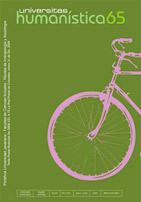Abstract
This article is part of a forthcoming book on the problems of social phenomenology, based on readings of the work of Alfred Schutz and his significance for contemporary social theory. Here, we will concentrate on the preliminary problems of a pure sociology. We will investigate the meaning of the categorial act according to Husserl, aiming to enlighten the fundamental question of the ontological statute of social issues. We will notice that a longstanding sociological tradition, which begins with Durkheim and continues until Schutz, has faced this issue in an unfruitful way. We will see, in both works, a “Kantian dilemma” which we believe would find solution in the Husserlian conception of the categorial act. We hope to make, with this work, a modest contribution to a future pure sociology.
This journal provides immediate open access to its content on the principle that making research freely available to the public, encourages greater global exchange of knowledge.
The journal Universitas Humanística is registered under a Creative Commons Attribution 4.0 International Public License. Thus, this work may be reproduced, distributed, and publicly shared in digital format, as long as the names of the authors and Pontificia Universidad Javeriana are acknowledged. Others are allowed to quote, adapt, transform, auto-archive, republish, and create based on this material, for any purpose (even commercial ones), provided the authorship is duly acknowledged, a link to the original work is provided, and it is specified if changes have been made. Pontificia Universidad Javeriana does not hold the rights of published works and the authors are solely responsible for the contents of their works; they keep the moral, intellectual, privacy, and publicity rights.
Approving the intervention of the work (review, copy-editing, translation, layout) and the following outreach, are granted through an use license and not through an assignment of rights. This means the journal and Pontificia Universidad Javeriana cannot be held responsible for any ethical malpractice by the authors. As a consequence of the protection granted by the use license, the journal is not required to publish recantations or modify information already published, unless the errata stems from the editorial management process. Publishing contents in this journal does not generate royalties for contributors.


